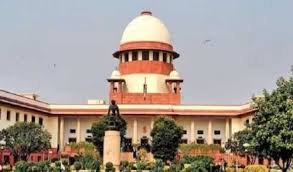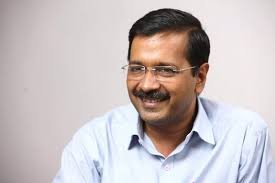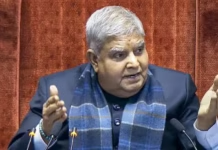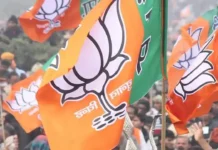
The Supreme Court of India has made a significant decision by allowing the Aam Aadmi Party-led Delhi Government to withdraw its legal cases filed against the Central Government and the Lieutenant Governor (LG). These legal cases were primarily centered around the long-standing conflict over who controls administrative services in the national capital. The court’s permission to withdraw the cases signals a shift in the Delhi Government’s legal and political strategy and marks a key moment in the ongoing tensions between the state administration and the Centre.
The dispute between the Delhi Government and the Centre is not new. It has been going on for several years, especially after the Aam Aadmi Party (AAP) came to power in Delhi. The main point of conflict has always been the control of services and administrative appointments. Delhi is not a full-fledged state but a Union Territory with a legislative assembly, which makes its administrative powers unique. While the Delhi Government has powers over certain subjects, the Centre retains control over important matters such as land, police, and public order. This overlapping authority has led to several legal and political clashes.
Over the years, the Delhi Government filed multiple cases in the Supreme Court, challenging the powers of the Centre and the LG in various administrative matters. These cases questioned the LG’s role in the transfer and posting of officers, among other issues. The Delhi Government has long argued that the elected government should have full control over its services to function efficiently and independently. The Centre, however, has insisted that national capital territory status comes with limitations.
On May 23, 2025, a bench of the Supreme Court allowed the Delhi Government to formally withdraw all its pending cases against the Central Government and the Lieutenant Governor. These cases were related to the governance and administrative structure of Delhi, including the control of services and transfer of officers. The court accepted the government’s request and made it clear that it had the right to withdraw the petitions if it chose not to continue the legal fight.
There could be several reasons why the Delhi Government made this decision. One possible reason is political strategy. With elections nearing, the AAP government may want to focus more on governance and public service delivery rather than spending time and energy on long legal battles. Another reason could be the desire to reduce political tensions and improve working relations with the Centre. It may also be that the Delhi Government wants to avoid more judicial setbacks after receiving mixed outcomes in earlier judgments. The legal process has already taken many years, and the government may have felt it was time to move on and focus on other priorities.
The reactions to this decision have been mixed. Leaders from the Aam Aadmi Party described it as a practical move aimed at ensuring better governance. A senior party spokesperson said that the Delhi Government wants to concentrate on solving people’s problems and that continuing legal fights would only act as a distraction. On the other hand, officials from the Central Government welcomed the move, stating that it could lead to improved cooperation and coordination between the two sides. Legal experts believe that this decision reflects a strategic shift by the AAP government. They say it shows a preference for political negotiations and governance over prolonged legal struggles.
The timeline of events shows how this issue has developed over time. The conflict began soon after AAP’s sweeping victory in the 2015 Delhi Assembly elections. Between 2016 and 2018, frequent disagreements with the LG and the Centre led to a series of court cases. In July 2018, the Supreme Court ruled that the LG must act based on the aid and advice of the Council of Ministers. However, the ruling did not provide full clarity on several important administrative issues. In 2023, the Central Government introduced an ordinance to create the National Capital Civil Services Authority, which further limited Delhi’s control over services. In 2024, new hearings were held in the Supreme Court. Then, in May 2025, the Delhi Government decided to withdraw the remaining cases.
This decision has both legal and political implications. Legally, the withdrawal of cases means that the Supreme Court will no longer rule on these issues unless new cases are filed in the future. It also shows that the Delhi Government may no longer want to depend on the judiciary to resolve this power struggle. Politically, the move might help AAP present itself as a mature and stable government that wants to work for the people. It may also reduce accusations against the Centre of interfering in Delhi’s governance. The decision could lead to a more peaceful working environment between the Delhi ministers and bureaucrats.
Now that the cases are withdrawn, the Delhi Government is expected to continue working under the existing rules and structure. This includes accepting the authority of the National Capital Civil Services Authority, which was created to manage transfers and postings. While the elected government may still have limited say in such matters, cooperation with the Centre may help it function more effectively. If fresh disputes arise in the future, the Delhi Government can still approach the court again.
People in Delhi have reacted in different ways to this news. Some residents are happy that the legal conflict is over and hope it will result in better governance. Others feel that the government should have continued its legal battle to secure more administrative freedom. On social media, the news sparked debates and led to trending hashtags like #DelhiGovt, #SupremeCourt, and #AAPvsCentre.In conclusion, the Supreme Court’s decision to allow the Delhi Government to withdraw its cases against the Centre and the Lieutenant Governor marks a turning point in Delhi’s governance. It shows that the AAP government is ready to move away from courtroom battles and instead focus on administration and service delivery. Whether this strategy will lead to real change and improved cooperation remains to be seen. For now, the legal chapter of this dispute is closed, and Delhi’s leaders must work together to meet the needs of the people.


































